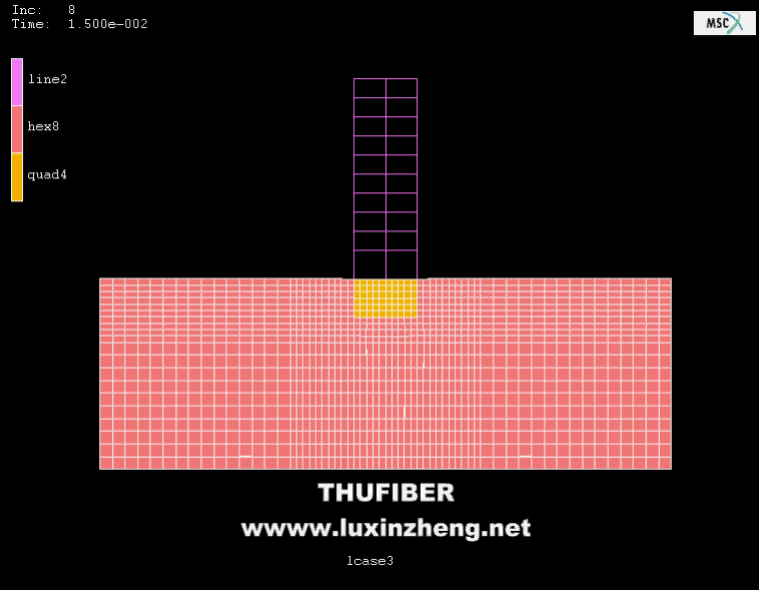Turnover simulation for the basement of tall buildings under blast
| Home | My Research |
Simulate the collapse of tall buildings and the turnover effect on the basement undear blast
Paper download
Effects
of concrete masonry walls on structures under nuclear blast loadings
Engineering Mechanics, 2008, 25(5): 73-78.
Abstract:
Concrete masonry walls subjected to blast loadings were analyzed with
the explicit dynamic finite element method. The nonlinear material properties,
nonlinear contact, large strain, large displacement were considered
in the analysis model. The effects on high rise building caused by masonry
wall deformation and failure under blast loadings were discussed. The
loading time history on high rise building caused by masonry wall failure
is presented. The numerical results show the mode of failure of masonry
walls is significantly influenced by the strength of blast wave. The
induced forces of structures are of triangle pattern, the larger the
strength of blast wave, the higher the peak value of forces . The critical
shear strength of mortar between masonry wall and the structural members
played an important role on the moment of peak forces and the duration
of forces.
Key words: nuclear blast wave; concrete masonry wall; high rise building;
effect; FEM
Study
on the Frame and Soil Model in Collapse Analysis
Computer Aided Engineering, 2006, 15(Sup.), 417-420.
Abstract: Based on the common finite element software of MSC.Marc, with the convenient secondary development capacity, special models for reinforced concrete (RC) frame and soil are developed, in which the RC beams and columns are simulated with the fiber model based program THUFIBER, while the soil is simulated with a modified Drucker-Prager model. The computational results show that with the outstanding nonlinear capacity and secondary development function, the superstructure and soil can be properly simulated.
Key words: MSC.Marc, reinforced concrete frame, fiber model, soil model
Application
of Layered Model in Analysis of Shear Wall Structures
Protective Engineering, 28(3), 2006, 9-13
Simulation for the collapse of frame tall building
Simulation for the collapse of shear wall tall building
